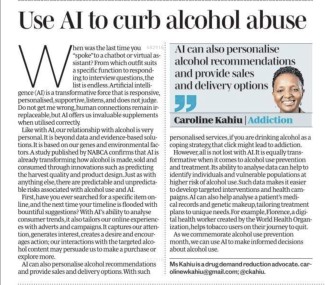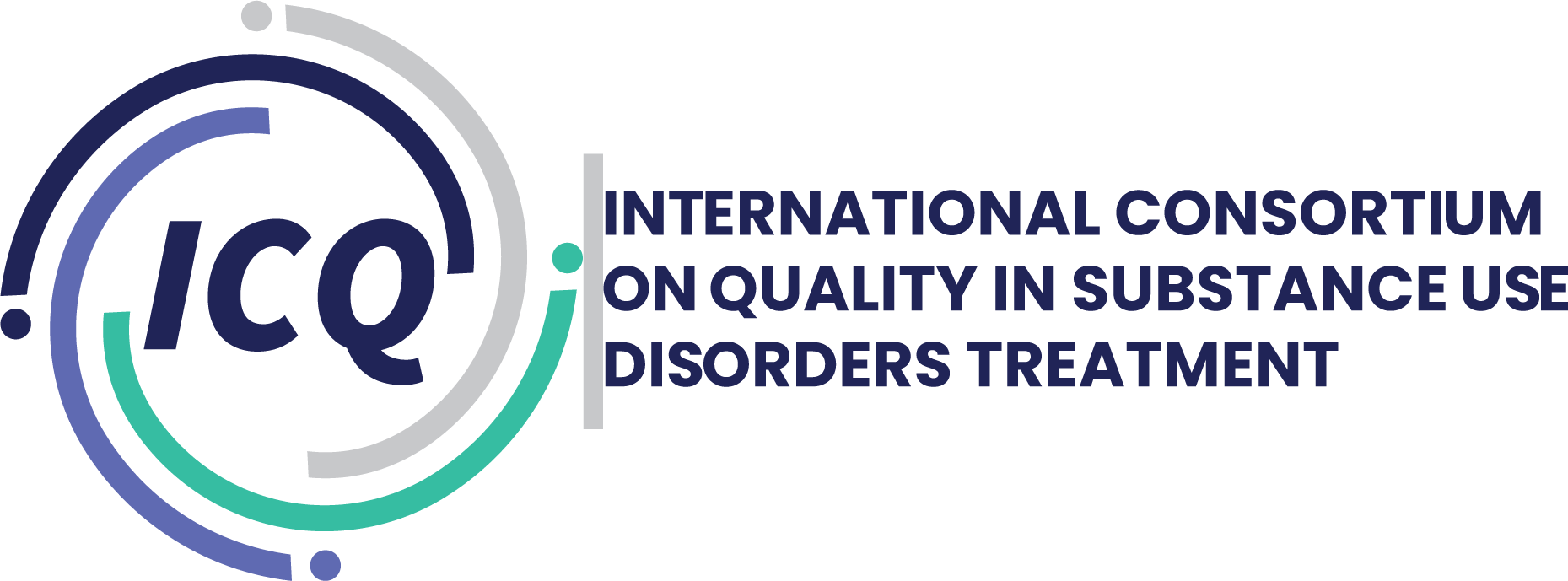Use Artificial Intelligence To Curb Alcohol Abuse

When was the last time you “spoke” to a chatbot or virtual assistant? From which outfit suits a specific function, responding to interview questions, recipes, today’s weather, gift ideas, the list is endless. Just as we asked where we would be without the internet, we now ask where we would be without artificial intelligence (AI)? AI is a transformative force that is responsive, personalized, supportive, listens, and does not judge. Do not get me wrong, human connections remain irreplaceable, but AI offers us invaluable supplements when utilized correctly.
Equally, our relationship with alcohol is very personal. It is beyond data and evidence-based solutions. It is based on our genes and environmental factors. AI studies our unique trends and personalizes content to meet our needs. For example, to choose a bottle of wine for dinner, AI has given us the confidence to explore new tastes and not conform to familiar ones. A study published by NABCA confirms that AI is already transforming how alcohol is made, sold, and consumed through innovations such as predicting the harvest quality and product design. Just as with anything else, there are predictable and unpredictable risks associated with alcohol use and AI.
First, have you ever searched for a specific item online, and the next time, your timeline is flooded with bountiful suggestions? With AI's ability to analyze our consumer trends, it also tailors our online experiences with adverts and campaigns. Just like the AIDA model, it captures our attention, generates interest, creates a desire, and encourages action; our interactions with the targeted alcohol content may persuade us to make a purchase or explore more.
Second, do remember the personalized question you asked the virtual assistant/ chatbot? Recommend a drink with no hangover, no aftertaste/smell, gives me a good night's sleep, and is affordable? Algorithms will give you just that. It will not only personalize the drink, but it will also provide delivery and online sales options. With such personalized services and if you are drinking alcohol as a coping strategy, that click might be a slippery road to alcohol addiction.
Third, your timeline and my timeline are different. Our behavioral data, demographics, and socioeconomic online engagements are different. AI utilizes this to predict and personalize our online interactions. The adverts and content are based on what we search, click on, and the time we spend on each item that pops up on our timelines. Our existing attitudes will determine how we evaluate the content and influence our behavior towards alcohol use.
However, all is not lost with AI. It is a transformative force, particularly in alcohol use prevention and treatment. Its ability to analyze data can identify individuals and vulnerable populations at higher risk of alcohol use. Such data makes it easier to develop targeted interventions and health campaigns. AI can also help analyze a patient’s medical records and genetic makeup, tailoring treatment plans to address his/her unique needs. AI can support interventions. Florence, a digital health worker created by the World Health Organization, helps tobacco users on their journey to a tobacco-free life. Finally, AI can bridge the gap between traditional therapies by supporting real-time prevention, recovery, and help in times of crisis.
As we commemorate alcohol use prevention month, we can utilize artificial intelligence to make informed decisions about alcohol use, taking cognizance of the ethical considerations associated with AI-driven solutions.
Published Daily Nation, page.16, 8.04.25.
